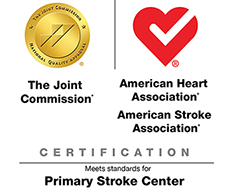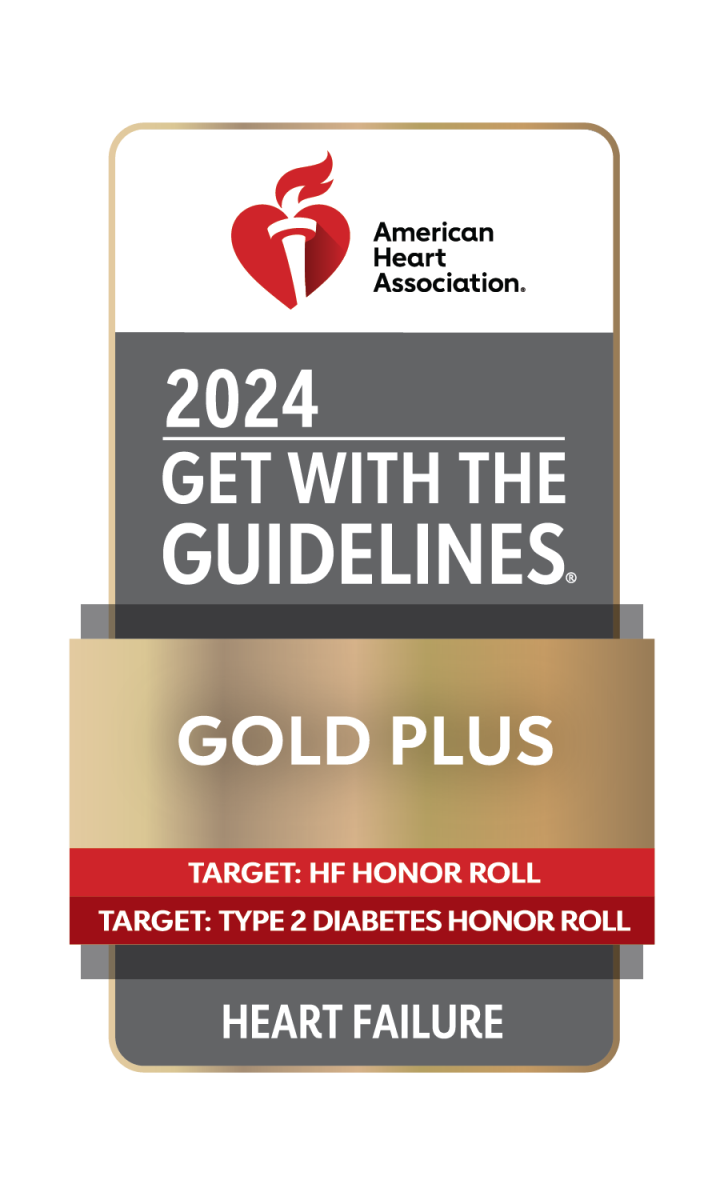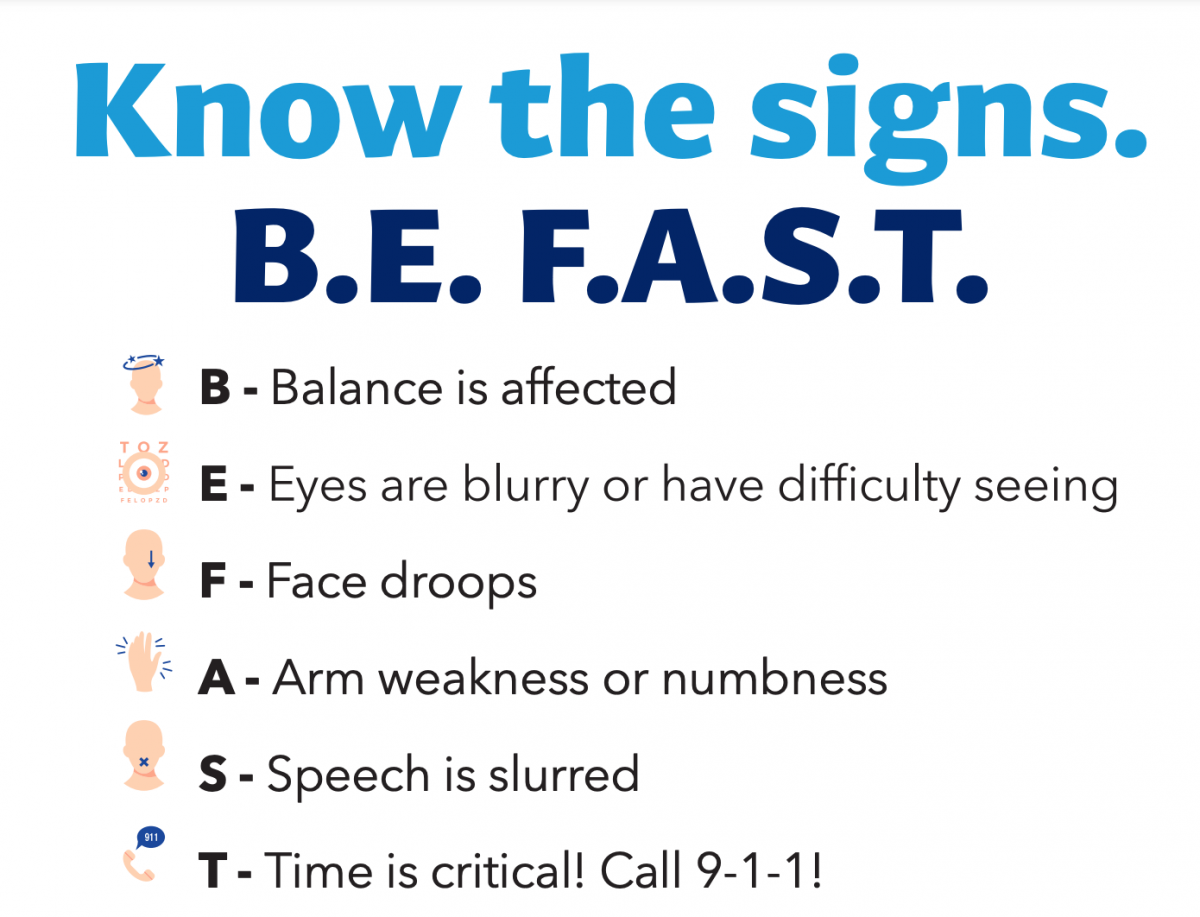Prompt, Expert Treatment for Stroke Patients
Stroke is the fifth leading cause of death and the leading cause of adult disability in the United States, according to the American Stroke Association. High blood pressure is the most important risk factor for stroke.
According to experts, a stroke should be treated with the same urgency as a heart attack. Every second is critical to patient care, survival and subsequent quality of life.
Nationally Recognized for High Quality Stroke Care
Joint Commission-Certified Primary Stroke Center
 Aiken Regional Medical Centers is proud to be recognized as a Primary Stroke Center by The Joint Commission. We are committed to providing high quality care to all patients who are affected by stroke. This special achievement recognizes centers that meet national standards set into place by The Joint Commission in collaboration with the American Stroke Association and the America Heart Association.
Aiken Regional Medical Centers is proud to be recognized as a Primary Stroke Center by The Joint Commission. We are committed to providing high quality care to all patients who are affected by stroke. This special achievement recognizes centers that meet national standards set into place by The Joint Commission in collaboration with the American Stroke Association and the America Heart Association.
Get With The Guidelines® GOLD PLUS Achievement Award
Aiken Regional Medical Centers is dedicated to improving the quality of stroke care. We're proud to receive the 2024 Get With The Guidelines® Stroke GOLD PLUS with Target: Stroke Honor Roll Elite and Target: Type 2 Diabetes Honor Roll award for having reached an aggressive goal of treating patients with 85 percent or higher compliance to core standard levels of care as outlined by the American Heart Association®.
Remember: If you or a loved one experience any signs of a stroke, call 9-1-1 immediately!
What is Stroke?
A stroke — sometimes called a brain attack — occurs when there is an interruption in the flow of blood to cells in the brain. Deprived of oxygen from the blood, the cells die. A stroke occurs when a blockage in an artery prevents blood from reaching cells in the brain, or an artery ruptures inside the brain, causing bleeding.
Quiz: How Much Do You Know About Strokes?
Test your knowledge about strokes, including risk factors, symptoms and statistics.
There are two kinds of strokes:
- Ischemic strokes are the most common. They occur when an artery is blocked and blood flow to the brain is stopped. Caused by build-ups of fatty deposits on the inside of an artery wall which then becomes completely clogged. Ischemic strokes account for eighty percent of all strokes suffered. Some ischemic strokes are preceded by stroke-like symptoms called transient ischemic attacks (TIAs). These may occur months before the stroke. The loss of vision in a TIA may be described as a feeling that a shade is being pulled down over your eyes. The symptoms are usually temporary and improve within 10 to 20 minutes.
- Hemorrhagic strokes occur when an artery inside the brain ruptures or when an aneurysm at the base of the brain bursts. Twenty percent of all strokes suffered are hemorrhagic strokes. Symptoms more specific to this type of stroke include headache, nausea and vomiting, neck stiffness, seizures, sudden changes in mental state and lethargy. Hemorrhagic strokes usually occur in the daytime and during physical activity. The symptoms typically begin very suddenly and evolve over several hours.
Team-Based Stroke Services
A multidisciplinary team of healthcare professionals at Aiken Regional Medical Centers work to evaluate and treat all stroke emergencies, 24 hours a day, seven days a week.
To help deliver prompt, quality care, the multidisciplinary team consists of:
- Emergency physicians
- Emergency nurses
- Interventional cardiologists
- Neurologists
- Neurosurgeons
- Radiologic technologists
- Registered cardiovascular invasive technologists
A Full Continuum of Care
Stroke patients have access to a comprehensive range of specially-designed services and treatments which focus on:
- Prevention and intervention
- Education
- Active management of strokes
- Rehabilitation
Know the Warning Signs of a Possible Stroke
As every second is critical to patient care, it is important to know the warning signs of a possible stroke, listed below.
- Sudden numbness or weakness of the face, arm or leg, especially on one side of the body
- Sudden confusion, trouble speaking or understanding
- Sudden trouble seeing in one or both eyes
- Sudden trouble walking, dizziness, loss of balance or coordination
- Sudden, severe headache with no known cause

Help Reduce Your Risk of Stroke
- Control your blood pressure
- Find out if you have heart disease, especially an irregular heartbeat known as atrial fibrillation, get treatment
- Find out if you have diabetes and get treatment
- Don't smoke
- Lower your cholesterol
- Limit your alcohol use
- Control your weight
Find a Doctor for Stroke Care
If you need a referral to a physician at Aiken Regional Medical Centers, call our free physician referral service at 803-761-6970.
